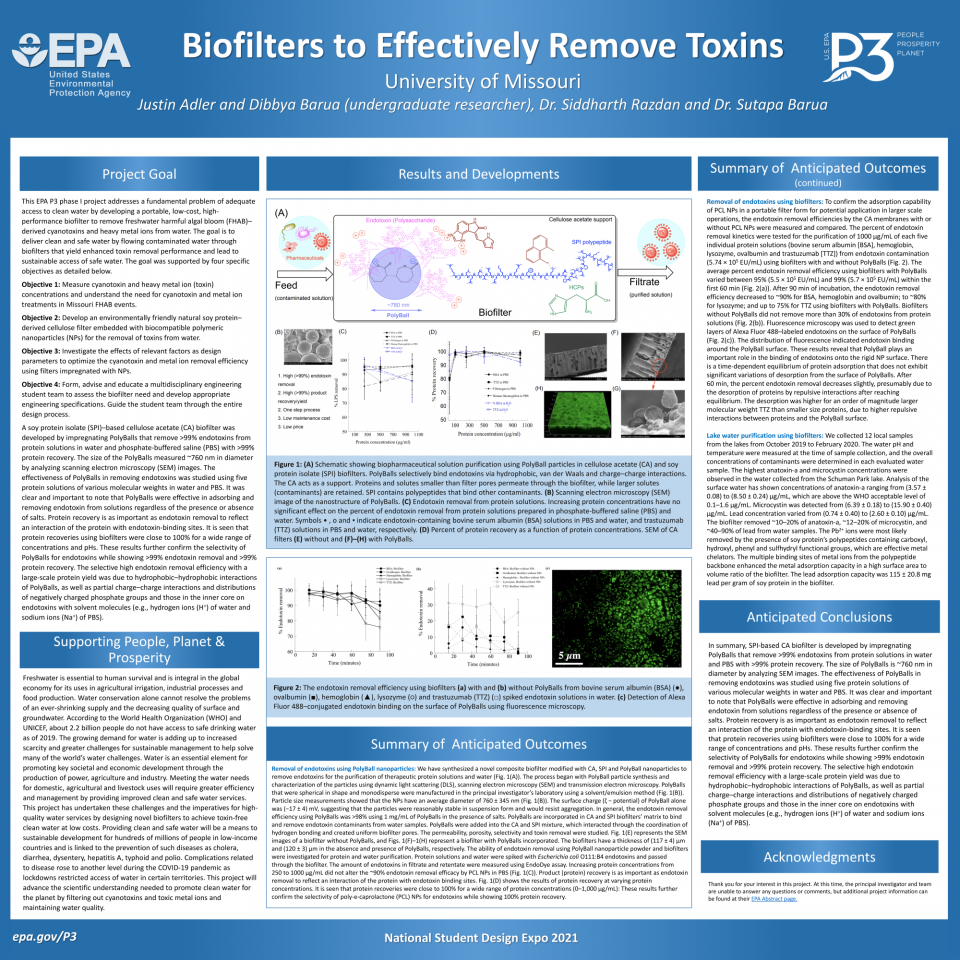2021 P3 Expo - Biofilters to Effectively Remove Toxins
University of Utah, Salt Lake City, UT
Communities are faced with significant threats to health by the supplied water from lakes or reservoirs that develop FHABs. During a bloom, cyanobacteria release the bacterial cell wall component endotoxin, and other toxins (i.e., microcystin) into the water, which enter the bloodstream upon ingestion causing an overwhelming inflammatory response in humans.
The goal of this project is to develop a portable, low cost biofilter that removes freshwater harmful algal bloom (FHAB) derived cyanotoxins and heavy metal ions from water using polymeric nanoparticles (NP) embedded in a soy protein derived cellulose filter that is biocompatible, biodegradable and inexpensive. The three major objectives that will be pursued in this project are:
Objective 1: Measure cyanotoxin and heavy metal ion (toxin) concentrations, and understand the need for cyanotoxin and metal ion treatments in Missouri FHAB events
Objective 2: Develop an environment friendly natural soy protein derived cellulose filter embedded with biocompatible polymeric NPs for the removal of toxins from water
Objective 3: Investigate the effects of relevant factors as design parameters to optimize the cyanotoxin and metal ion removal efficiency using filters impregnated with NPs

